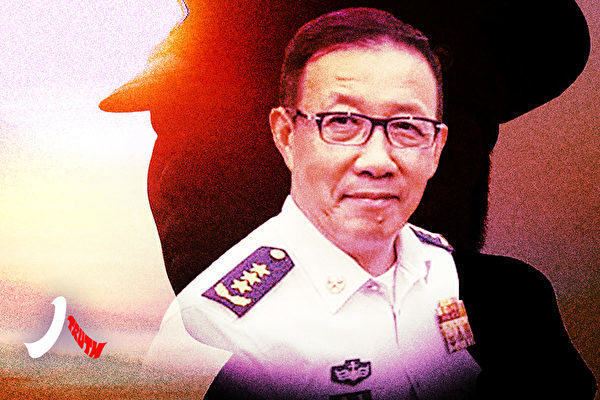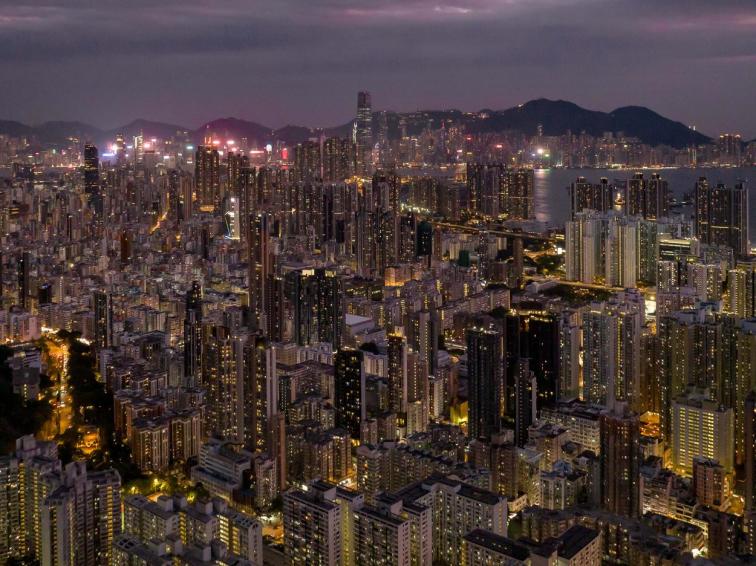The Communist Party of China has adopted a new model of anti-corruption known as the group annihilation effect. (People News/AI-generated image)
[People News] The PLA is a relatively independent and closed organisation with a unique culture of personal rule. The determination of how to deal with fallen military officials is often dictated by higher authorities, treating them as political enemies. Consequently, for those military officials who refuse to confess, the torture methods can be more covert and brutal than those used in civilian settings. Various sources have revealed that the torture methods include: simultaneous electric shocks with multiple batons, tiger chairs, beatings, branding with heated irons, forced airplane flights, dismemberment, sonic attacks that damage the nervous system, administering poison injections, and confinement in psychiatric hospitals, among others.
Recently, multiple media outlets reported that He Weidong, Vice Chairman of the Central Military Commission of the PLA, has committed suicide. The latest information indicates that He Weidong had been under investigation since his arrest and died in early May at Beijing's '301' Hospital.
On May 24, independent commentator Cai Shenkun stated in his media program that "He Weidong was arrested after the Two Sessions and was initially interrogated at the 301 Hospital, later being transferred to Baoding. However, it is strange that by mid-May, all the guards watching over He Weidong had returned to Beijing, and even the chef responsible for his meals had also gone back to Beijing." He revealed that the latest information indicates that He Weidong was sent to the 301 Hospital after his suicide attempt, but resuscitation efforts were unsuccessful, with the time of death reported as May 2. Prior to this, there were also reports of He Hongjun, the Executive Deputy Director of the Political Department of the Military Commission, having committed suicide on the afternoon of May 18.
The release of this information has immediately drawn the attention of political observers. What is the likelihood that He Weidong and He Hongjun committed suicide?
It is important to note that Miao Hua, the Director of the Political Department of the Central Military Commission, has been officially announced to have fallen from grace by the Chinese Communist Party (CCP). He Wei Dong and Miao Hua originally had a superior-subordinate relationship, jointly overseeing personnel appointments and dismissals within the CCP military. The selection and appointment of senior generals in the People's Liberation Army must first go through Miao Hua and then He Wei Dong. Thus, the likelihood of a symbiotic relationship between Miao Hua and He Wei Dong in terms of interests is extremely high, as is the probability of them forming a conspiracy or collusion in committing crimes. The Financial Times reported on April 10 that, according to six informed sources, He Wei Dong has been dismissed. One source indicated that He Wei Dong has been under interrogation by the authorities since his detention.
Recently, Australian legal scholar Yuan Hongbing cited insiders within the CCP system, revealing that the most brutal punishments for fallen officers extend beyond mere physical beatings or being placed on a tiger bench. The two most terrifying forms of punishment include, firstly, preventing sleep by locking the officer in a room with an iron door and waking him up every time he is about to fall asleep. Secondly, they may be confined in a solitary dark room without light (with no items, not even knowing the time), with only a small round skylight in the ceiling through which some food is dropped daily. Excretion occurs in the cramped space, creating a suffocating environment. Generally, a person cannot endure this for more than five days before their mental state collapses, leading them to confess everything.
In such an environment, it is conceivable that He Wei Dong or He Hongjun might contemplate hellish punishments, facing asset confiscation, reputational damage, personal humiliation, and the implication of relatives and friends, leading to a sense of despair so profound that they might prefer death as a means of escape.
However, some perspectives suggest that, logically speaking, it is unlikely that He Weidong and He Hongjun would be subjected to torture. The Chinese Communist Party (CCP) possesses numerous high-tech methods for tormenting individuals, and this is not the first time they have detained high-ranking officials. Until the situation is clarified, strict surveillance would be in place, making it impossible for them to have the opportunity to commit suicide. Even in cases of hunger strikes or self-harm, the CCP has ways to manage such situations. Unless there is an intention to kill them to silence them.
The two Hes are, after all, trusted allies of Xi Jinping, and Xi's power has not yet been fully dismantled. If they are facing any issues, Xi should be aware of them, making it improbable that they could be easily silenced. Whether it is suggested that they participated in anti-Xi activities or that factions opposing Xi want to deal with them, it is unlikely they would be cut off from providing testimony before the situation reaches a conclusion.
Reports from various media indicate that in recent years, the CCP has dealt with a significant number of high-ranking officials, many of whom have been 'disappeared' and may have been 'internally processed.' Some have even been secretly executed by political adversaries.
This situation also falls under the category of information that the authorities choose not to disclose. The internal narrative of the CCP is often quite appealing, citing 'self-revolution' or corruption leading to self-exclusion from the Party and the people. In other words, after being silenced by political enemies, it is also possible that the narrative of suicide is propagated externally.
Current affairs commentator Yue Shan recently wrote that if He Weidong and He Hongjun truly committed suicide or died by suicide, it would at least resonate with rumors regarding Zhang Youxia, the Vice Chairman of the Central Military Commission, who, with the backing of CCP elders, is said to be orchestrating the purge of Xi's faction. This suggests that there is currently ruthless action being taken against Xi's associates, which also reflects a form of contempt for Xi. If they indeed died, it would not be to protect their master, but rather because they could no longer endure the mental and physical torment.











News magazine bootstrap themes!
I like this themes, fast loading and look profesional
Thank you Carlos!
You're welcome!
Please support me with give positive rating!
Yes Sure!